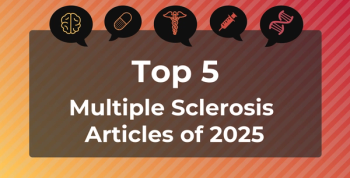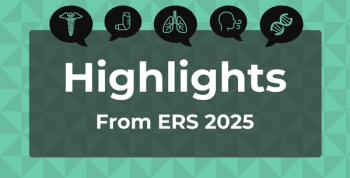
Stroke patients face unequal access to clot-removal care; race and insurance shape transfers, even with Medicare—here’s what must change, according to Luke Messac, MD, PhD.

Skylar is an associate editor for The American Journal of Managed Care® (AJMC®) and The Center for Biosimilars®, and joined AJMC® in 2020. She is responsible for covering all aspects of the ever-changing global biosimilar industry and produces content that is accessible and informative for all health care stakeholders.
She has a BA in journalism and media studies from Rutgers University. You can connect with Skylar on LinkedIn.

Stroke patients face unequal access to clot-removal care; race and insurance shape transfers, even with Medicare—here’s what must change, according to Luke Messac, MD, PhD.

ED dizziness visits see rising MRI use at discharge; exam-guided imaging helps detect missed strokes and informs secondary prevention.

Stroke recovery improves when care addresses social needs like reducing loneliness and depression and strengthening support.

Shervin Badihian, MD, explains how digital health tools can help boost poststroke activity via reminders, goals, feedback, and gamification.

Rising stroke rates in young adults highlight the need to manage blood pressure and cholesterol early and improve outcomes through better ICU care.

Deaf patients face major gaps in stroke care, from poor ASL health literacy to interpreter barriers, undermining discharge understanding and emergency response.

Obesity market overview for employers: data on GLP-1s for obesity, digital solutions, and benefit strategies to control costs and outcomes.

New research highlights the effectiveness of targeted therapies for metabolic dysfunction–associated steatohepatitis (MASH), guiding treatment decisions and trial designs.

Semaglutide shows promise in improving liver health and metabolic outcomes in MASH, enhancing steatohepatitis resolution and cardiometabolic measures.

New research reveals gut microbiome changes in children with obesity signal liver disease progression, offering insights for early detection and intervention.

A systematic review reveals that cardiovascular risks emerge early in chronic kidney disease, highlighting the need for tailored management strategies.

Explore the evolving GLP-1 landscape with insights from industry experts, shaping future health strategies and plan designs for employers.

Dyslipidemia significantly impacts cardiovascular risk in chronic kidney disease, necessitating tailored lipid management strategies for optimal patient outcomes.

Researchers unveil a spatial multi-omics atlas revealing immune cell interactions and lipid metabolism's role in metabolic liver diseases, offering new therapeutic insights.

A new analysis reveals effective therapies for reducing liver fat in metabolic dysfunction-associated steatohepatitis and highlights MRI-PDFF as a key measurement tool.

Research reveals a potential link between preeclampsia and increased risks of chronic kidney disease, urging careful monitoring post pregnancy.

Modest weekend sleep recovery may reduce chronic kidney disease risk, especially for those with short weekday sleep duration.

ASCO GU 2025 had groundbreaking advancements in genitourinary cancer treatments, focusing on prostate cancer, renal cell carcinoma, and health equity.

Discover the latest breakthroughs in multiple sclerosis treatments and research developments shaping the future of MS care in 2025.

Explore the top 5 insights on managed care, public health policy, and emerging health trends shaping 2025's health care landscape.

Experts discuss the evolving dynamics between payers and providers in oncology, emphasizing value-based care, data transparency, and collaborative reform opportunities.

Discover key insights from the ERS Congress 2025, highlighting advancements in pulmonary fibrosis treatment and the promising role of nerandomilast.

While artificial intelligence showed empathy and precision in respiratory health care, its equitable adoption is paramount to prevent the widening digital divide, as highlighted at the European Respiratory Society Congress 2025.

The FDA has approved pembrolizumab and enfortumab vedotin for muscle-invasive bladder cancer (MIBC), offering new hope for patients ineligible for cisplatin.

The FDA announced draft guidance to remove clinical efficacy studies for biosimilars and also issued the position that all biosimilars in the US should be interchangeable.

Health care workers face significant financial hardships, including food insecurity and housing instability, impacting retention and patient care quality.

Research reveals that Medicaid accountable care organization (ACO) designs significantly impact maternal health outcomes, highlighting the importance of structural partnerships in care delivery.

Empathy and communication strengthen patient-provider relationships and improve respiratory care outcomes, as discussed at the European Respiratory Society (ERS) Congress.

At the European Respiratory Society Congress, experts explored the critical connections between climate change, respiratory health, and health equity, highlighting the importance of integrated solutions, local action, and education.

Experts at the ERS Congress 2025 highlighted threats to scientific integrity from misinformation, political interference, and predatory publishing in health research.

Published: June 27th 2025 | Updated: July 1st 2025

Published: October 13th 2024 | Updated:

Published: February 19th 2025 | Updated:

Published: February 27th 2021 | Updated:

Published: May 11th 2025 | Updated:

Published: May 16th 2021 | Updated:

259 Prospect Plains Rd, Bldg H
Cranbury, NJ 08512
© 2025 MJH Life Sciences®
All rights reserved.
